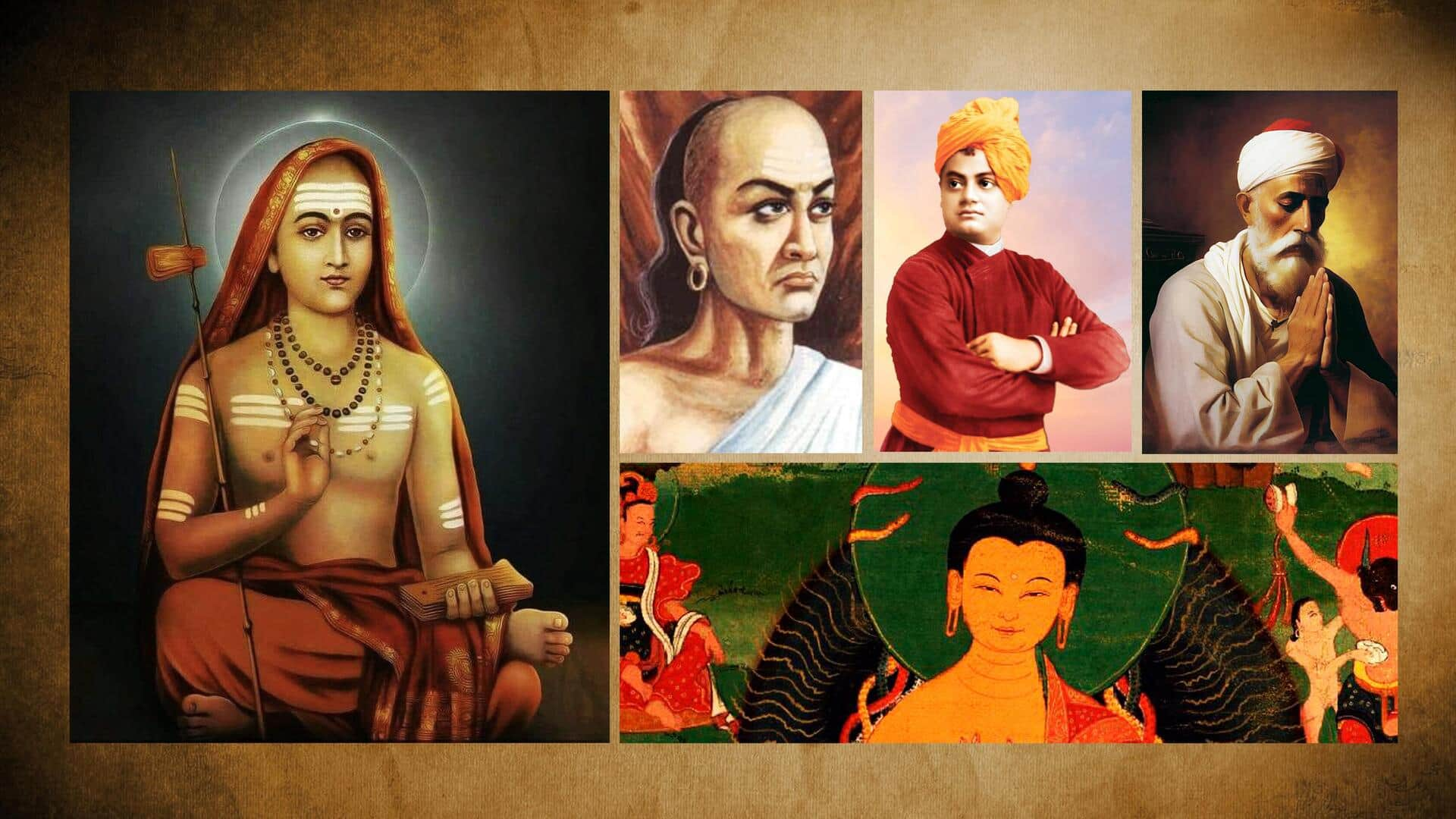
World Philosophy Day: Profound legacy of five notable Indian philosophers
What's the story
Within India's rich cultural weave, profound philosophical insights have flourished, braided by extraordinary minds. This odyssey delves into the legacies of five eminent Indian philosophers, illuminating their impact on the subcontinent's philosophical landscape. These intellectual trailblazers, through their lives and teachings, have left an indelible mark on the vast expanse of India's intellectual heritage, shaping the philosophical discourse for generations to come.
Adi Shankaracharya
Adi Shankaracharya - The reviver of Vedanta
Adi Shankaracharya, a sage of the 8th century, stands as a beacon in the history of Indian philosophy. His transformative influence lies in the revitalization of Vedanta, particularly through the lens of non-dualism (Advaita Vedanta). Shankara's teachings elucidate the profound unity between the individual soul (Atman) and the cosmic consciousness (Brahman), forging a path of spiritual realization.
Chanakya
Chanakya - The mastermind behind Arthashastra
Chanakya, the ancient scholar and advisor to Chandragupta Maurya, holds a revered status for his enduring work, the Arthashastra. This comprehensive treatise on statecraft and economics delves into the intricacies of political strategy, governance, and ethical conduct. Chanakya's wisdom extends beyond his era, providing timeless insights that have shaped not only ancient India but also subsequent generations.
Swami Vivekananda
Swami Vivekananda - A modern proponent of Vedanta
In the late 19th century, Swami Vivekananda emerged as a dynamic force, passionately propagating the principles of Vedanta and India's spiritual legacy. His influential speeches at the World's Parliament of Religions in Chicago introduced the West to the depth and universality of Indian philosophy. Vivekananda's teachings continue to inspire seekers globally, emphasizing the practical application of spirituality in daily life.
Nagarjuna
Nagarjuna - The pioneer of Madhyamaka Buddhism
Nagarjuna, a luminary in 2nd-century Buddhism, profoundly shaped the Madhyamaka school with his philosophical acumen. His insights into the nature of reality and the concept of emptiness (sunyata) have left an indelible mark on Buddhist thought. Nagarjuna's intellectual legacy extends beyond time and borders, influencing the development of Mahayana Buddhism across diverse cultures in Asia.
Kabir Das
Kabir Das - The mystic poet of Bhakti
Kabir, a mystic poet of the 15th century, transcends religious confines with his profound and accessible philosophy. Rooted in the Bhakti movement, Kabir's verses emphasize devotion, unity, and a direct connection with the divine. His timeless poetry resonates across cultures and religions, serving as a bridge between different faiths and inspiring a harmonious approach to spirituality.